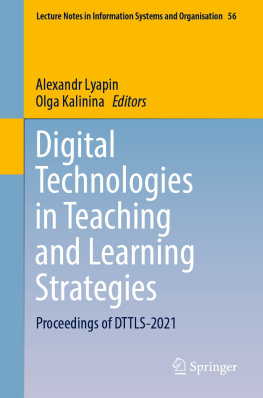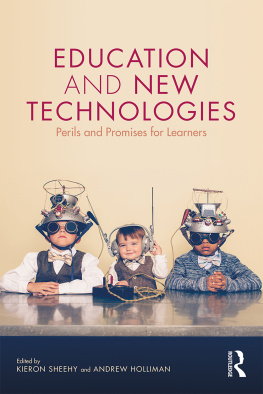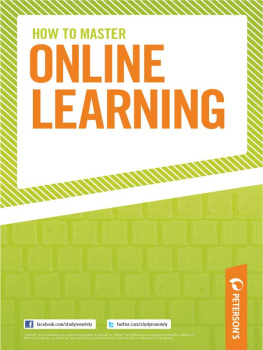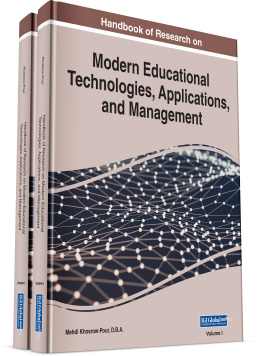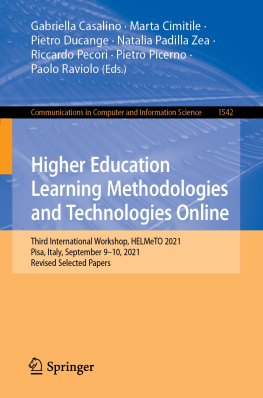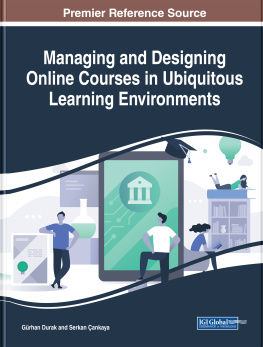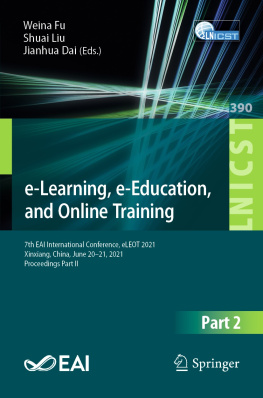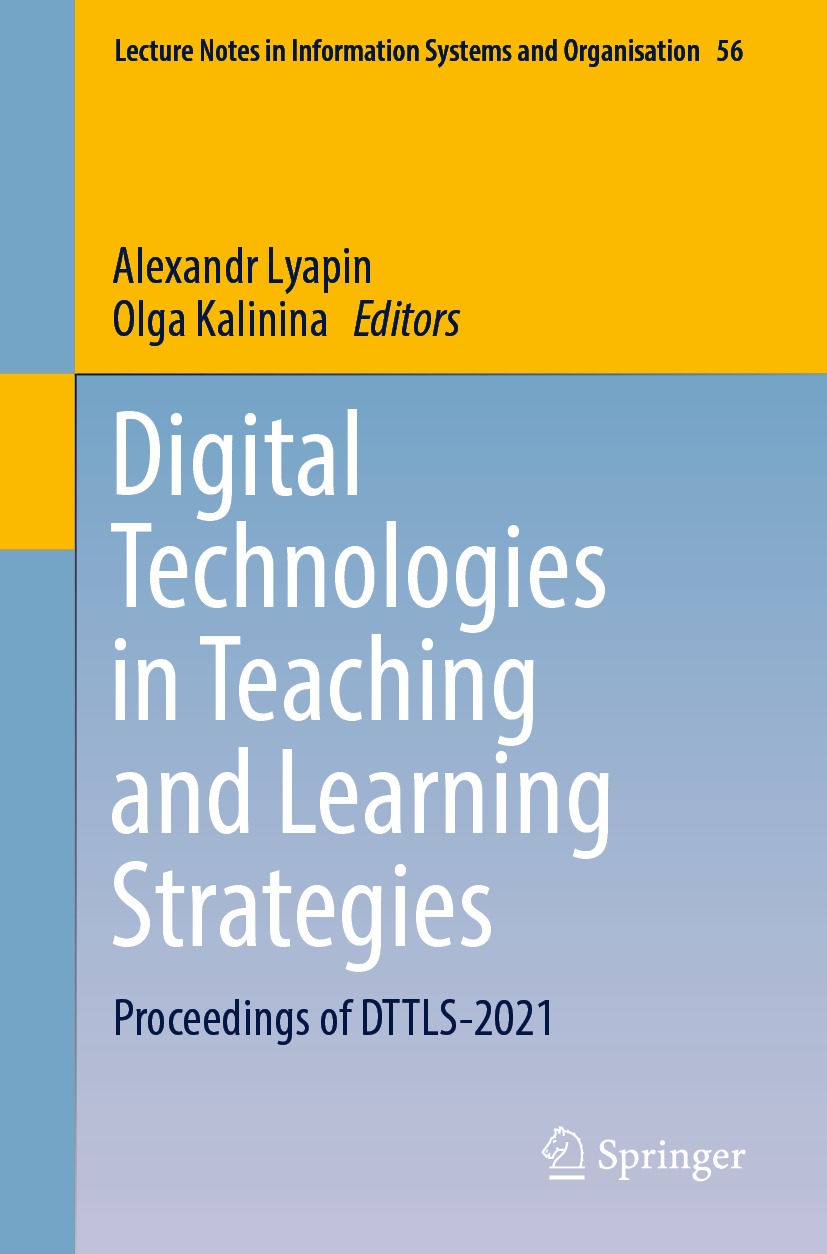Alexandr Lyapin - Digital Technologies in Teaching and Learning Strategies: Proceedings of DTTLS-2021
Here you can read online Alexandr Lyapin - Digital Technologies in Teaching and Learning Strategies: Proceedings of DTTLS-2021 full text of the book (entire story) in english for free. Download pdf and epub, get meaning, cover and reviews about this ebook. City: Cham, year: 2022, publisher: Springer, genre: Science. Description of the work, (preface) as well as reviews are available. Best literature library LitArk.com created for fans of good reading and offers a wide selection of genres:
Romance novel
Science fiction
Adventure
Detective
Science
History
Home and family
Prose
Art
Politics
Computer
Non-fiction
Religion
Business
Children
Humor
Choose a favorite category and find really read worthwhile books. Enjoy immersion in the world of imagination, feel the emotions of the characters or learn something new for yourself, make an fascinating discovery.
- Book:Digital Technologies in Teaching and Learning Strategies: Proceedings of DTTLS-2021
- Author:
- Publisher:Springer
- Genre:
- Year:2022
- City:Cham
- Rating:4 / 5
- Favourites:Add to favourites
- Your mark:
Digital Technologies in Teaching and Learning Strategies: Proceedings of DTTLS-2021: summary, description and annotation
We offer to read an annotation, description, summary or preface (depends on what the author of the book "Digital Technologies in Teaching and Learning Strategies: Proceedings of DTTLS-2021" wrote himself). If you haven't found the necessary information about the book — write in the comments, we will try to find it.
This book is of interest for developers of applications and programs for online education, for software and hardware suppliers who want to keep up with the times and reorient existing IT systems for use in online education.
Alexandr Lyapin: author's other books
Who wrote Digital Technologies in Teaching and Learning Strategies: Proceedings of DTTLS-2021? Find out the surname, the name of the author of the book and a list of all author's works by series.

